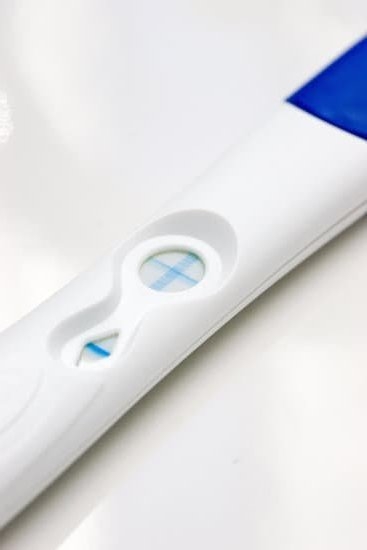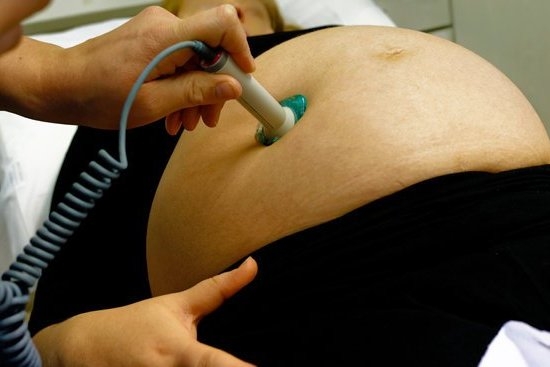Are you planning to start a family or already expecting? Taking care of your nutrition before and after pregnancy is crucial for the health of both you and your baby. This article will guide you through the important aspects of pre and post-pregnancy nutrition, from the key nutrients you need to fuel a healthy pregnancy to meal planning and lifestyle tips for maintaining a balanced diet.
The journey of pregnancy begins well before conception, making it essential to prepare your body for this unique experience. Proper nutrition during pregnancy plays a vital role in ensuring the growth and development of your baby, as well as supporting your overall health. From the first trimester until after giving birth, understanding the significance of pre and post-pregnancy nutrition can have a lasting impact on both you and your child’s well-being.
Throughout this article, we will explore the specific nutrients that are crucial for a healthy pregnancy, meal planning ideas tailored to support the different stages of pregnancy, as well as lifestyle tips that can help you maintain a balanced diet throughout this journey. Whether you are in the early stages of planning for pregnancy or already navigating through the different trimesters, prioritizing proper nutrition is key to having a healthy and positive pregnancy experience.
The Importance of Proper Nutrition During Pregnancy
During pregnancy, it is crucial for women to prioritize proper nutrition in order to support the healthy development of their baby and to maintain their own health. Proper nutrition during pregnancy can reduce the risk of complications and promote overall wellbeing for both the mother and child. It is important for women to focus on consuming a balanced diet that includes a variety of nutrients essential for the growth and development of the baby.
Key Nutrients for a Healthy Pregnancy
There are several key nutrients that play a critical role in supporting a healthy pregnancy. Folic acid, iron, calcium, and omega-3 fatty acids are just a few examples of essential nutrients that pregnant women should incorporate into their diet. Folic acid is particularly important in the early stages of pregnancy as it can help prevent birth defects of the brain and spine.
Iron is essential for carrying oxygen to the baby and preventing anemia in the mother. Calcium is necessary for bone health, while omega-3 fatty acids support brain and eye development in the fetus.
Tips for Preparing Your Body for Pregnancy
Before becoming pregnant, women should focus on preparing their bodies by following a well-balanced diet, staying physically active, managing stress levels, and avoiding harmful substances such as alcohol and tobacco. It is also advisable to consult with a healthcare provider to ensure any pre-existing conditions are managed effectively before conception. By focusing on pre-pregnancy nutrition and lifestyle habits, women can help set the foundation for a healthy pregnancy journey and promote optimal fetal development.
Overall, prioritizing proper nutrition during pregnancy is essential for both the mother’s health and the baby’s development. By understanding the importance of key nutrients, preparing the body before pregnancy, and adopting healthy lifestyle choices, women can provide optimal conditions for their baby’s growth while maintaining their own wellbeing throughout the entire journey from pre-pregnancy through postpartum recovery.
Key Nutrients for a Healthy Pregnancy
During pregnancy, it is important to focus on consuming key nutrients that are essential for the health of both the mother and the developing baby. A well-balanced diet that includes a variety of nutrient-dense foods can help ensure that both the mother and baby receive the necessary vitamins and minerals for optimal health and development.
Folic Acid
Folic acid, also known as folate, is a B vitamin that plays a crucial role in preventing neural tube defects in babies. It is recommended that women who are trying to conceive or are pregnant consume 400-800 micrograms of folic acid daily. Foods rich in folic acid include leafy green vegetables, citrus fruits, beans, and fortified cereals.
Iron
Iron is important during pregnancy as it helps deliver oxygen to the baby and prevents iron-deficiency anemia in the mother. Pregnant women should aim to consume around 27 milligrams of iron per day. Good sources of iron include lean meats, poultry, fish, lentils, beans, and fortified cereals.
Calcium
Calcium is essential for bone health and development in both the mother and baby. Pregnant women need about 1,000 milligrams of calcium per day. Dairy products such as milk, cheese, and yogurt are excellent sources of calcium, as well as fortified plant-based milk alternatives like almond or soy milk.
Incorporating these key nutrients into your daily diet can help support a healthy pregnancy experience and ensure proper pre & post pregnancy nutrition for both you and your baby.
Tips for Preparing Your Body for Pregnancy
Preparing your body for pregnancy is an important step in ensuring a healthy and successful journey to motherhood. Good pre & post pregnancy nutrition is vital during this time, as it sets the stage for a healthy pregnancy and can even impact the health of your future child. Making positive changes to your diet and lifestyle prior to becoming pregnant can help support fertility, reduce the risk of complications, and promote overall well-being.
One key aspect of preparing your body for pregnancy is maintaining a balanced and nutritious diet. This includes consuming a variety of whole foods that are rich in essential nutrients such as folic acid, iron, calcium, and omega-3 fatty acids. It may also be beneficial to incorporate prenatal vitamins into your daily routine prior to conception to ensure you are getting all the necessary vitamins and minerals.
In addition to focusing on pre & post pregnancy nutrition, it’s important to engage in regular physical activity as part of preparing for pregnancy. Exercise can help maintain a healthy weight, improve overall fitness, and reduce stress levels – all of which can contribute to a smoother conception and pregnancy experience.
| Preparation Tips | Recommendations |
|---|---|
| Maintain a balanced diet | Consume whole foods rich in essential nutrients |
| Consider prenatal vitamins | To ensure adequate vitamin and mineral intake |
| Engage in regular exercise | For weight management and stress reduction |
Nutrition During the First Trimester
During the first trimester of pregnancy, a woman’s body undergoes significant changes to support the growing baby. It is during this time that proper nutrition is crucial to ensure the health and development of the fetus. Pre & post pregnancy nutrition plays a vital role in providing essential nutrients that are needed for the mother’s well-being and the baby’s growth.
One of the key nutrients needed during the first trimester is folic acid, which is vital for preventing birth defects in the baby’s brain and spinal cord. It is recommended that women who are planning to conceive or are in the early stages of pregnancy should consume at least 400 micrograms of folic acid daily through supplements or fortified foods.
Additionally, iron-rich foods such as lean meats, poultry, fish, beans, and spinach are important for preventing anemia and supporting the increased blood volume during pregnancy.
Aside from specific nutrients, it is also important for pregnant women to focus on maintaining a well-rounded diet that includes a variety of fruits, vegetables, whole grains, lean proteins, and healthy fats. Eating small, frequent meals throughout the day can help alleviate symptoms such as nausea and fatigue that are common during the first trimester.
By prioritizing pre & post pregnancy nutrition during these early stages, women can set a strong foundation for their overall well-being and their baby’s development throughout the rest of their pregnancy journey.
| Key Nutrients | Sources |
|---|---|
| Folic Acid | Leafy greens, fortified cereals, beans |
| Iron | Lean meats, poultry, fish, beans |
Nutrition During the Second Trimester
During the second trimester of pregnancy, proper nutrition is essential for the health and development of both the mother and the baby. This stage, which spans from week 13 to week 28, is crucial for ensuring that the body gets the necessary nutrients to support the growth and development of the fetus. A well-balanced diet during this time can also help in managing some of the common discomforts that women may experience during pregnancy.
One key nutrient that becomes particularly important during the second trimester is iron. As the body’s blood volume increases to accommodate the needs of the growing fetus, an adequate intake of iron becomes crucial in preventing anemia. Foods rich in iron such as lean meats, poultry, fish, beans, and fortified cereals can help meet this increased demand.
Additionally, calcium is vital during this stage as it aids in the development of strong bones and teeth for both the mother and baby. It is recommended to include dairy products like milk, cheese, and yogurt in one’s diet. Other sources of calcium include leafy greens such as kale and spinach. Getting enough vitamin D along with calcium also helps with its absorption.
| Nutrient | Importance |
|---|---|
| Iron | Prevents anemia by supporting increased blood volume |
| Calcium | Aids in bone and teeth development for both mother and baby |
| Vitamin D | Assists in calcium absorption |
Nutrition During the Third Trimester
During the third trimester of pregnancy, it is crucial for expectant mothers to focus on their nutrition in order to support the rapid growth and development of the baby. As the baby continues to grow and gain weight, the mother’s nutritional needs also increase. This is a critical time to ensure that both the mother and baby are receiving adequate nutrients for a healthy pregnancy and optimal fetal development.
Key nutrients to prioritize during the third trimester include:
1. Iron: Iron is essential for preventing anemia and ensuring proper oxygen delivery to both the mother and baby. Good sources of iron include lean red meat, poultry, fish, lentils, beans, and fortified cereals.
2. Calcium: Calcium is important for building strong bones and teeth for the baby. Dairy products such as milk, cheese, and yogurt are excellent sources of calcium, as well as leafy green vegetables like spinach.
3. Omega-3 fatty acids: Omega-3 fatty acids are crucial for brain development in the baby. Fatty fish like salmon and trout, as well as walnuts and flaxseeds, are rich sources of this nutrient.
In addition to focusing on specific nutrients, it is important for expectant mothers to maintain a well-balanced diet during the third trimester. This includes consuming a variety of fruits, vegetables, whole grains, lean proteins, and healthy fats. Staying hydrated is also essential during this time.
Incorporating these key nutrients into a well-rounded diet can help support both maternal health and fetal development during this critical stage of pregnancy. By prioritizing pre & post-pregnancy nutrition during the third trimester, expectant mothers can help ensure a healthy outcome for themselves and their babies.
Post Pregnancy Nutrition
After giving birth, it is crucial for new mothers to continue prioritizing their nutrition to aid in the recovery process and provide the necessary nutrients for breastfeeding. Post pregnancy nutrition plays a vital role in replenishing the body’s stores and supporting overall health. With the physical, emotional, and hormonal changes that occur after childbirth, focusing on a well-balanced diet becomes even more essential.
The Importance of Post Pregnancy Nutrition
During the postpartum period, a woman’s body goes through significant changes as it starts to recover from childbirth. Proper nutrition can help in replenishing lost nutrients, facilitating tissue repair, boosting energy levels, and promoting emotional well-being. Additionally, for those who choose to breastfeed, maintaining an adequate diet is crucial in providing essential nutrients for both the mother and the baby.
Key Nutrients for Post Pregnancy Nutrition
Several key nutrients play a crucial role in post pregnancy nutrition. Iron is important to replace iron stores lost during childbirth and to prevent postpartum anemia. Calcium is essential for bone health, especially if the mother is breastfeeding, while omega-3 fatty acids support brain development in newborns. Protein is vital for tissue repair and supporting milk production, while staying hydrated is also essential for recovering from childbirth and breastfeeding effectively.
It is important for new mothers to focus on consuming nutrient-dense foods such as fruits, vegetables, whole grains, lean proteins, and healthy fats to support their overall well-being during this critical time. Additionally, consulting with a healthcare provider or a registered dietitian can help develop a personalized nutrition plan to meet individual needs during the postpartum period.
Meal Planning and Recipes for Pre & Post Pregnancy Nutrition
Proper meal planning and nutrition before, during, and after pregnancy is crucial for the health of both the mother and the baby. It’s important to focus on consuming a well-balanced diet that includes a variety of nutrients to support the growth and development of the baby, as well as to help the mother recover postpartum. Here are some meal planning tips and recipes for pre & post pregnancy nutrition:
Pre-Pregnancy Meal Planning Tips
– Start by incorporating a variety of fruits, vegetables, whole grains, lean proteins, and healthy fats into your diet.
– Limit processed foods, added sugars, and unhealthy fats to reduce inflammation in the body and prepare it for pregnancy.
– Consider taking a prenatal vitamin to ensure you’re getting all the essential nutrients needed for preconception health.
Post-Pregnancy Recipes
1. Green Smoothie Bowl: Blend together spinach, banana, avocado, almond milk, and protein powder. Top with granola, berries, and a drizzle of honey for a nourishing postpartum breakfast.
2. Quinoa Salad with Roasted Veggies: Toss cooked quinoa with roasted vegetables such as sweet potatoes, bell peppers, and zucchini. Drizzle with a lemon vinaigrette for a satisfying lunch or dinner option packed with essential nutrients.
Snack Ideas
By focusing on nutrient-dense foods before and after pregnancy and incorporating these meal planning tips and recipes into your diet, you can help support a healthy pregnancy experience while also nourishing your body during the postpartum period.
Lifestyle Tips for Maintaining a Healthy Diet During and After Pregnancy
As you navigate through the stages of pre and post pregnancy, it is essential to prioritize a healthy diet to support your body and your growing baby. Maintaining proper nutrition during pregnancy and after childbirth is crucial for the overall well-being of both mother and child. Here are some lifestyle tips to help you maintain a healthy diet during and after pregnancy:
1. Stay hydrated: It is important to drink plenty of water before, during, and after pregnancy. Proper hydration can help prevent constipation, fatigue, and may even reduce the risk of preterm labor.
2. Eat a variety of nutrient-rich foods: Focus on incorporating a diverse range of fruits, vegetables, lean proteins, whole grains, and healthy fats into your diet. This will ensure that you are getting all the essential vitamins and minerals necessary for a healthy pregnancy experience.
3. Practice mindful eating: Pay attention to your hunger and fullness cues. It’s important to eat when you’re hungry and stop when you’re satisfied. This mindful approach to eating can help you avoid overeating or undereating during this critical time.
4. Take prenatal vitamins: Even with a well-balanced diet, it can be challenging to get all the necessary nutrients solely from food. Prenatal vitamins can fill in the nutritional gaps and provide essential nutrients like folic acid, iron, calcium, and vitamin D.
5. Plan ahead for post-pregnancy meals: As you prepare for life after childbirth, consider meal prepping or stocking up on easy-to-prepare meals that are both nourishing and convenient. This can help alleviate some of the stress associated with meal planning while adjusting to life with a new baby.
By following these lifestyle tips for maintaining a healthy diet during and after pregnancy, you can support your overall health as well as the health of your baby. Prioritizing proper nutrition throughout this journey is key to having a positive pregnancy experience and setting the stage for postpartum recovery.
Conclusion
In conclusion, prioritizing nutrition before and after pregnancy is essential for a healthy pregnancy experience. The nutrients a woman consumes before and during her pregnancy can greatly impact her own health, as well as the health of her developing baby.
Proper nutrition is vital for supporting the growth and development of the fetus, preventing birth defects, and reducing the risk of complications during pregnancy and delivery. Additionally, post-pregnancy nutrition plays a key role in helping the mother’s body recover and replenish essential nutrients that may have been depleted during childbirth.
It is crucial for women to focus on consuming key nutrients such as folic acid, iron, calcium, protein, and omega-3 fatty acids both before and during their pregnancy to support a healthy pregnancy. A well-balanced diet that includes plenty of fruits, vegetables, whole grains, lean proteins, and dairy products can provide the necessary nutrients for both mother and baby. Post-pregnancy nutrition should also focus on replenishing nutrients lost during childbirth and supporting breastfeeding if applicable.
In addition to maintaining a nutritious diet, lifestyle factors such as regular exercise, adequate hydration, sufficient sleep, and stress management also play important roles in promoting a healthy pregnancy experience. By prioritizing pre & post-pregnancy nutrition along with overall wellness habits, women can optimize their health before, during, and after pregnancy for themselves and their growing families.
Frequently Asked Questions
What Should I Eat Before and After Pregnancy?
It’s important to focus on a balanced diet before and after pregnancy. This means incorporating plenty of fruits, vegetables, whole grains, lean proteins, and healthy fats into your meals.
Before pregnancy, it’s also important to take a prenatal vitamin with folic acid. After pregnancy, focus on nourishing foods that can help with recovery and provide essential nutrients for breastfeeding.
What Is the Nutrition for Pregnancy and Postpartum?
Nutrition during pregnancy is vital for both mother and baby. It’s important to consume enough folate, iron, calcium, protein, and healthy fats to support the growth and development of the baby. Postpartum nutrition should continue to focus on these nutrients as well as hydration and energy-boosting foods to aid in recovery from childbirth.
What Are the Nutritional Requirements for Postpartum?
The nutritional requirements for postpartum include consuming enough calories to support breastfeeding if applicable. It’s important to stay hydrated and eat nutrient-dense foods such as fruits, vegetables, whole grains, lean proteins, and healthy fats.
Iron-rich foods are also important due to blood loss during childbirth. Additionally, Omega-3 fatty acids are beneficial for both physical recovery and brain health.

Welcome to my fertility blog. This is a space where I will be sharing my experiences as I navigate through the world of fertility treatments, as well as provide information and resources about fertility and pregnancy.





